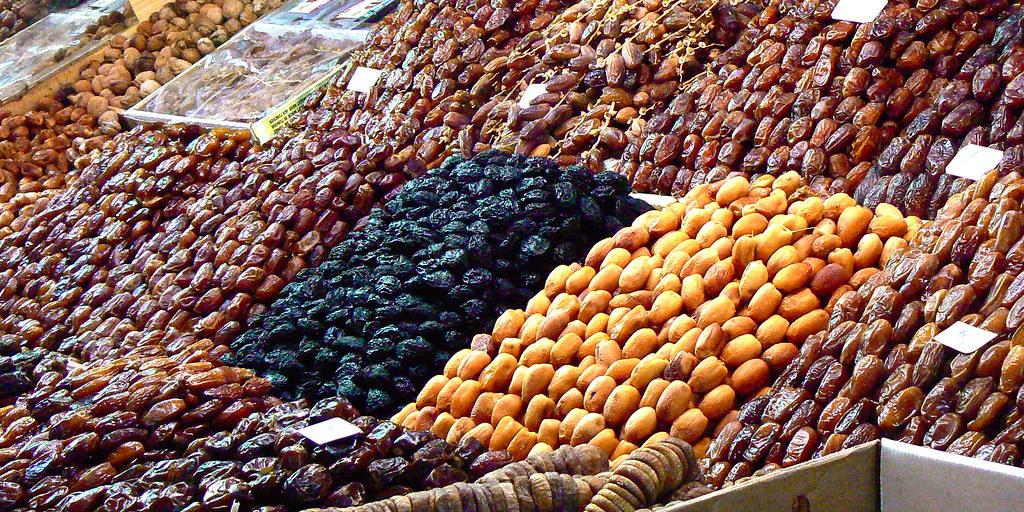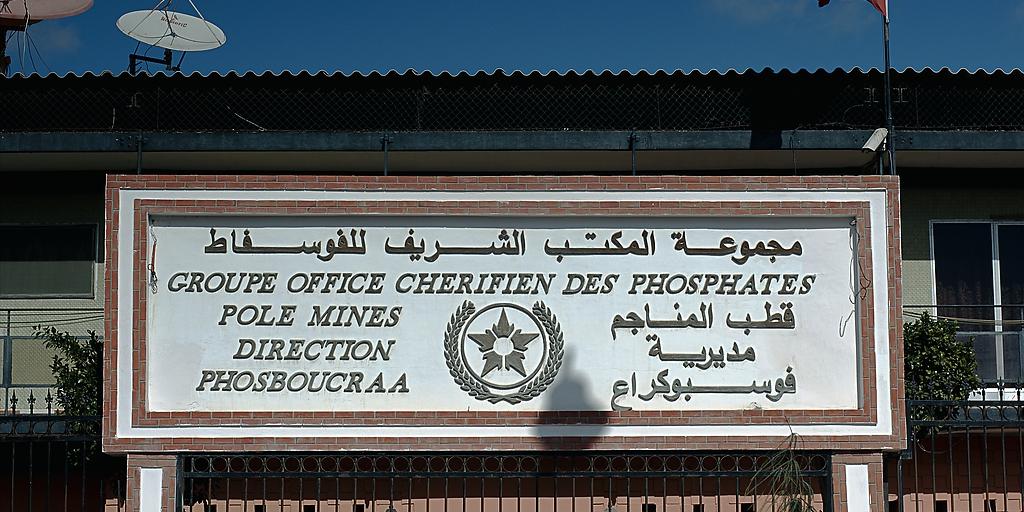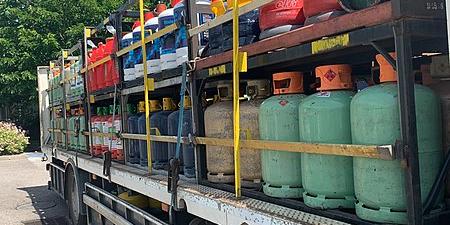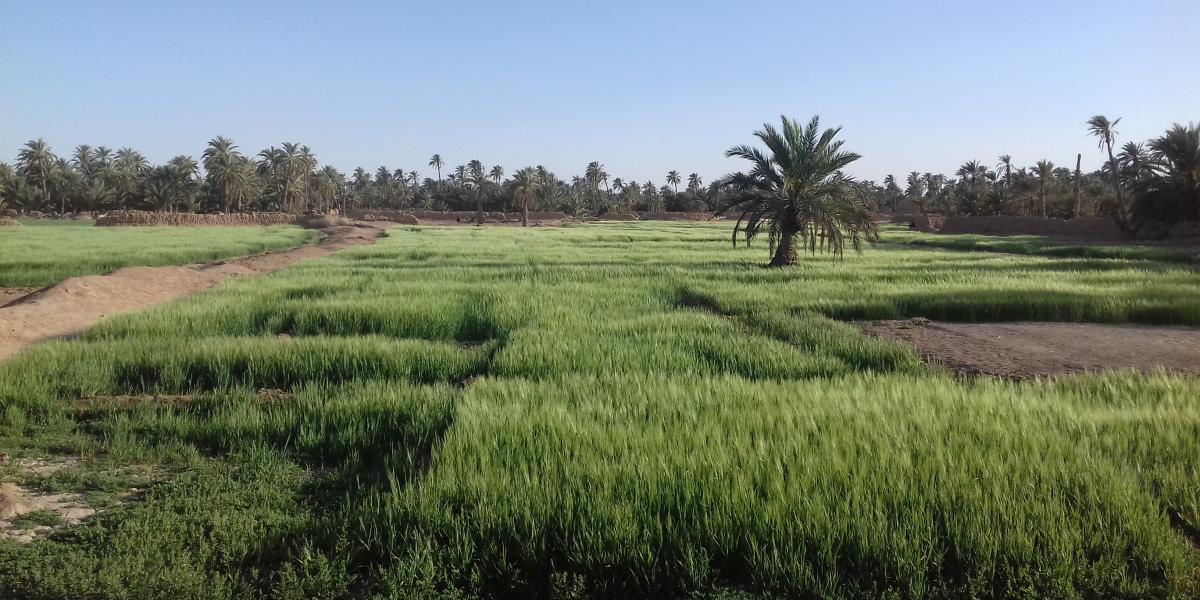Egypt aims to invest LE82.9B in agricultural sector during 2022-2023
- 27 July 2022 / News / 518 / Fares RAHAHLIA
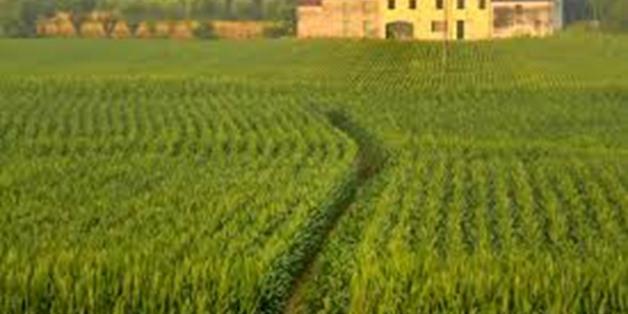
CAIRO - 26 July 2022: Egypt’s Ministry of Planning aims to invest LE 82.9 billion =in the agricultural sector during the next fiscal year 2022/2023, compared to LE 62.9 billion expected in 21/2022, with a growth rate of about 31.8 percent.
The Ministry also targets to achieve an increase in agricultural production from LE 1.2 trillion expected in 21/2022 to LE 1.37 trillion in the 22/2023 plan, according to a report in which the ministry reviewed the most important goals of the agriculture and irrigation sector in the economic and social development plan for the fiscal year 2022/2023.
For her part, Minister of Planning and Economic Development, Hala EL-Said, said in a statement, Tuesday, that the agriculture and irrigation sector occupies a double importance, as it represents - on the one hand - one of the main pillars of national food security, and on the other hand - it’s one of the main pillars to support the production capabilities of the national industry, and the associated transport, trade and logistics activities.
More than half of Egypt's population is in rural areas
El-Said explained that agriculture is the main source of income and employment due to its wide geographical area, and there are more than 55 percent of the Egyptian population in rural areas, where the main dependence on agricultural activities, and the related activities of animal, pourtly and fish production, and transportation, storage and marketing services,
Moreover, it is one of the three sectors on which the National Structural Reform Program is based, along with the manufacturing industry, communications and information technology, given that it constitutes about 11 percent of the GDP at current prices in the plan year, 15 percent of non-oil commodity exports, and absorbs about 25 percent of the total Man power.
The minister pointed to the signing of a technical cooperation protocol to update the sustainable agricultural development strategy 2030 with the Food and Agriculture Organization of the United Nations (FAO), within the framework of the national program for the period (2018-2022), which focuses on three government priorities, including improving agricultural productivity and raising the level of food security, and sustainable use of natural agricultural resources.
Objectives of the 22/2023 plan for the agriculture and irrigation sector
With regard to the objectives of the 22/2023 plan for the agriculture and irrigation sector; the Planning Minister stated that it is intended to increase the sector’s investments to reach LE 82.9 billion in the year of the plan, compared to LE 62.9 billion expected in 21/2022, with a growth rate of about 31.8 percent.
In addition, agricultural production is expected to increase 12.8 percent from LE 1.2 trillion expected in the year 21/2022 to LE 1.37 trillion in the plan in the year 22/2023 at current prices, which is equivalent to 10 percent of the gross domestic production (GDP), and at constant prices to about LE 12.7 trillion pounds in the year of the plan with a growth rate 4.4 percent.
It is also intended to increase the agricultural domestic product to LE 959.7 billion in the year of the plan at current prices, and to LE 877.9 billion at constant prices, and to improve agricultural productivity to exceed the cropped area of 19 million feddans by the end of the year 22/2023, with the development of agricultural exports to reach about $3.6 billion in the year of the plan.
On the main trends of the sector; the report of the Ministry of Planning indicated that the plan pays great attention to improving the economics of the agricultural sector by adopting five basic orientations, which are to achieve a steady increase in investments directed to agricultural and irrigation activities in line with the objectives of horizontal and vertical expansion during the year of the plan, developing the performance of the agricultural sector, and improving the efficiency of sectors services related to agricultural activity, and activating a set of national programs aimed at developing the activities of the agricultural sector, in addition to expanding the implementation of modern irrigation projects, lining and rehabilitating canals, and developing water and irrigation systems to maximize the utilization of water resources.
Integrated Agricultural Development Programs
The plan for the fiscal year 22/2023 includes a set of integrated agricultural development programs; It is the horizontal expansion program, which includes the new Delta projects, the South Valley Development Project (Toshka), the Egyptian Rural Development Project, and the North and Central Sinai Development Project.
The plan also includes a vertical expansion program, which aims to increase the productivity of an acre by 15 percent to 20 percent, as well as a food security program, and a contract farming program.
In addition, there are the seed production program, the animal production development program, as well as the fish farming program, and water resources development and rationalization programs, which include a set of programs, namely the project for rehabilitation and lining of canals, the field irrigation development project, the national project for greenhouses, and the national project for developing lakes.
Agricultural Export Development Program
The plan for the year 22/2023 also includes the Agricultural Export Development Program, whereby Egypt enjoys competitive advantages in many agricultural commodities, enabling it to access a wide range of markets.
Within the framework of the 22/2023 plan, it is targeted to increase agricultural exports to about 6 million tons, against an expectation of 5.25 million tons in the year 21/2022, which would allow the development of agricultural export earnings to exceed $3.6 billion in the year of the plan.
Achieving these goals comes through two main axes of action: first, the development of agricultural crops with global export capabilities - which have a productive surplus after the saturation of the local market, and secondly, the expansion of access to foreign markets.
source: egypttoday
 English
English
 français
français
 العربية
العربية


